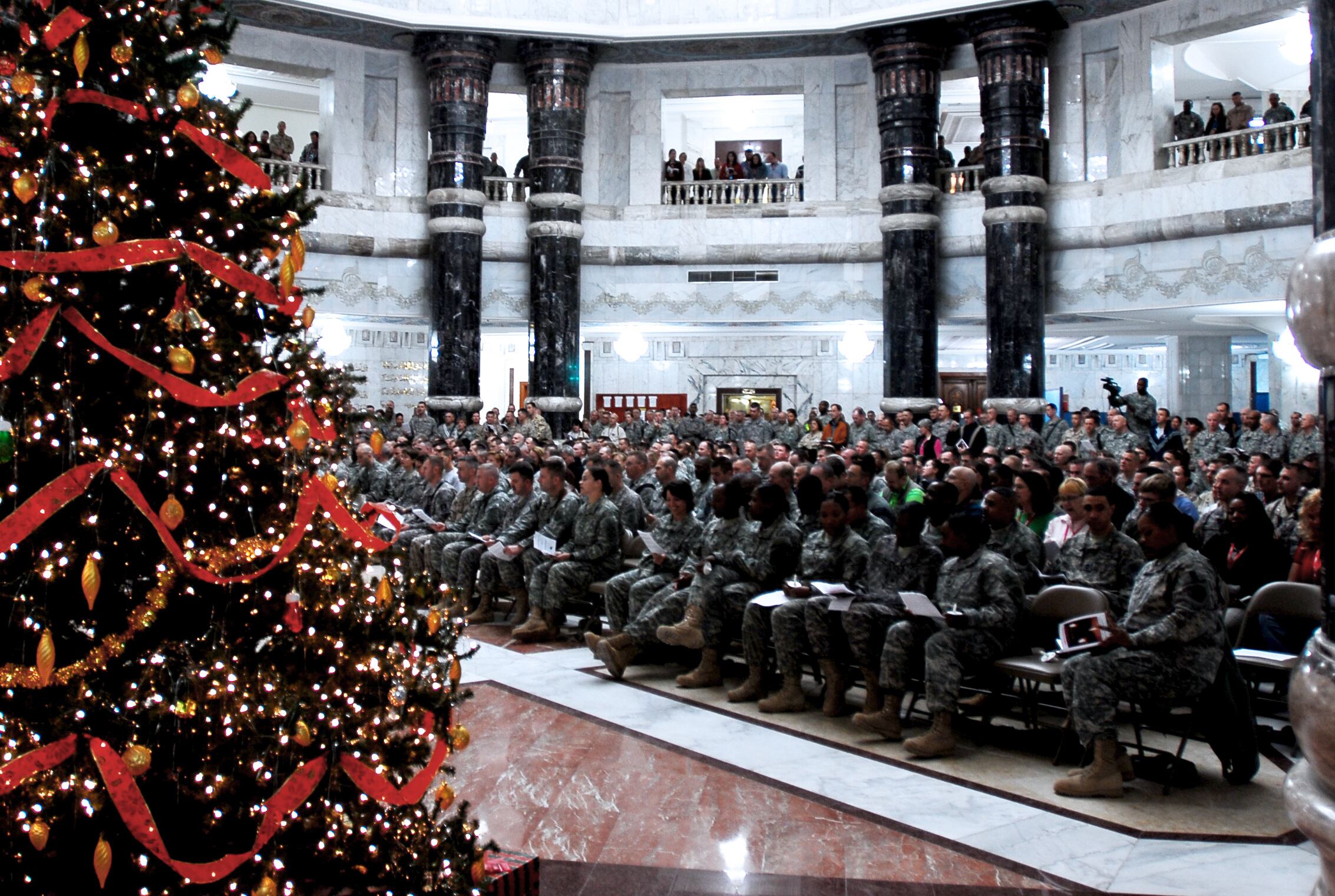After 22 years spread out between the U.S. Army and Navy, I lost track of all the Christmases, Thanksgivings, New Years and birthdays I spent deployed. What I do remember is the feeling of being away from my wife and daughters for each of those events.
I missed family moments. I settled for short phone calls from afar, pushing aside the moments of sadness so I could focus on work while keeping my sights set on being home for the next big occasion.
This is the same story for many in the armed forces, especially when multiple deployments are the norm rather than the exception. We know our service will cost us meaningful time with those we love, but we do it because we love this country and have a duty to protect it. We do it for the people we are missing at home and for those around us, despite the frustrations we may feel.
Reflecting on my own experiences this time of year, the question that continues to surface is why American troops are still spending Thanksgivings and Christmases in harm’s way. If the country’s leaders are going to ask so much of its military — the missed holidays, the danger, and the willingness to sacrifice lives — they had better have legitimate reasons.
In the last 20 years, our wars abroad have fallen victim to mission creep and unrealistic objectives that don’t serve vital interests at home. Congress has ceded to the president and Pentagon its constitutional responsibility to debate and vote on military action. Those who are least accountable to the American people are operating under outdated, overly broad Authorizations for the Use of Military Force, and our troops pay the price.
The 2002 AUMF is one example. It authorized operations in Iraq in 2003 against the government of Saddam Hussein. Operation Iraqi Freedom crawled to its conclusion years ago, and Saddam Hussein is long dead. No current operations rely solely on this AUMF for justification. And yet, keeping it on the books could allow presidents to misuse it to launch new military operations in the region without the approval of Congress.
That is not how congressional oversight of war was ever intended.
Declaring war and engaging in military operations is serious business. It should be approached with a full understanding of the risks, rewards, consequences and potential outcomes. Sending troops into harm’s way should be among the toughest decisions members of Congress make, and they should be held accountable for those choices.
But of course, politicians are politicians, and Congress has refused to take back that responsibility by not reasserting its war powers and repealing outdated AUMFs.
Some members of Congress have come up with the political courage to stop this trend — most notably, Senators Todd Young, R-Ind., and Tim Kaine, D-Va., who for years have been driving a bipartisan effort to repeal the outdated 1991 and 2002 AUMFs.
I had hoped to see this effort rewarded by repeal being included in the National Defense Authorization Act bill advanced by Congress. Unfortunately, those antiquated war authorizations will live to be misused another day. Maybe the next Congress can get its act together and finally get this work done.
As we enjoy this holiday season at home, surrounded by those we love and the bounty that freedom provides, I hope that we don’t forget it is all bought at a price. The cost is not just the blood, sweat, tears and lives of our service members, but the missed holidays, birthdays, gatherings and moments they will never get back.
America’s troops honor us with their service and sacrifice. The very least Congress can do is honor them by debating and voting on military engagements and keeping troops out of harm’s way until it’s absolutely necessary to keep America safe.
Jason Beardsley is senior coalitions advisor for Concerned Veterans for America and director of veterans initiatives for Stand Together, and has worked for both the Department of Defense and Department of Veterans Affairs. Jason is a veteran of the Army and Navy with extensive combat experience.
Have an opinion?
This article is an Op-Ed and as such, the opinions expressed are those of the author. If you would like to respond, or have an editorial of your own you would like to submit, please email us.
Want more perspectives like this sent straight to you? Subscribe to get our Commentary & Opinion newsletter once a week.





